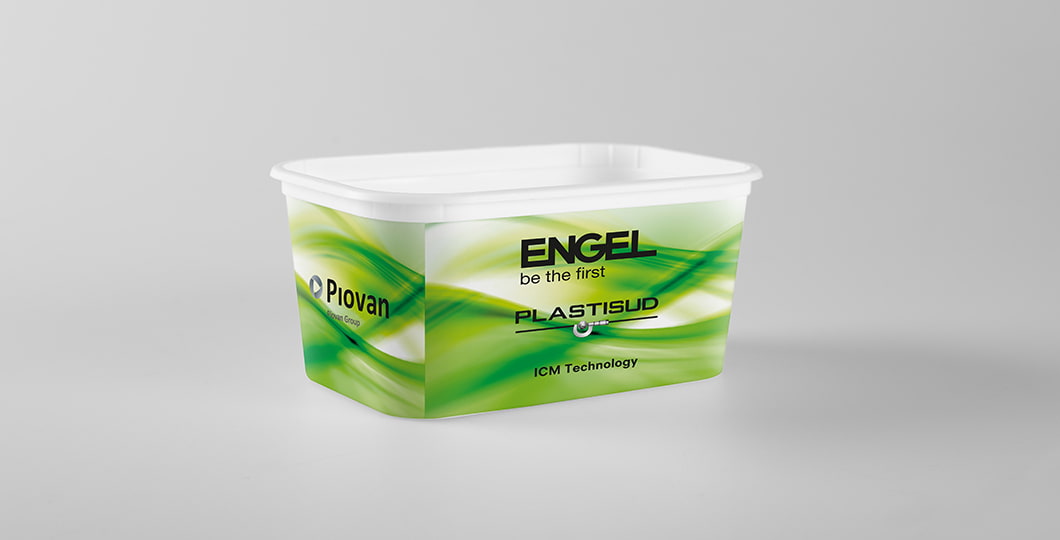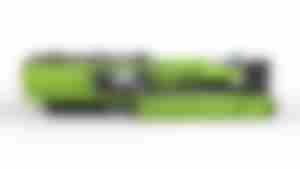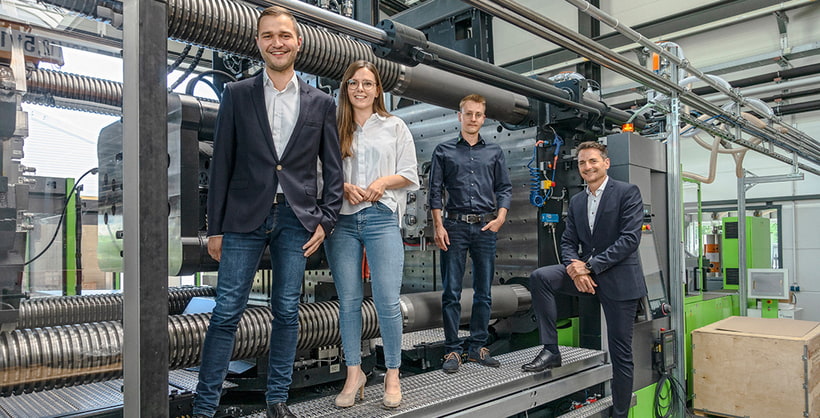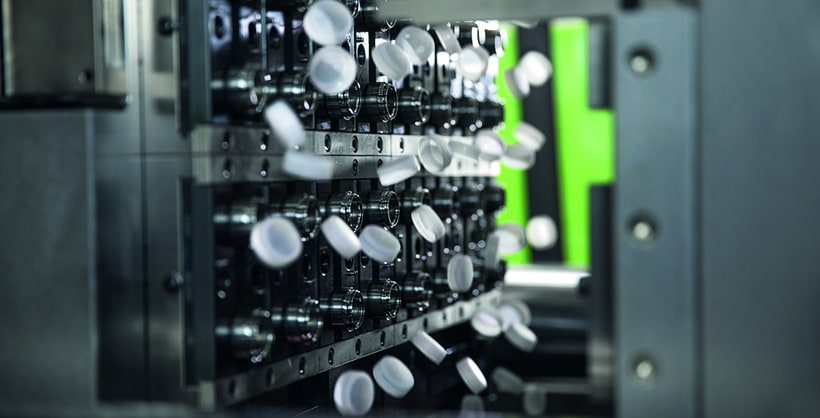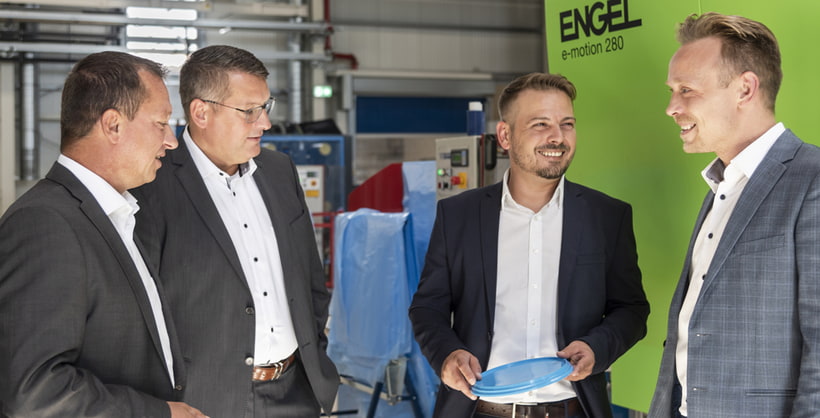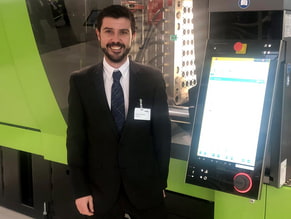Injection compression moulding for the packaging industry
ENGEL combines injection-compression moulding of thin-walled containers with the use of stack moulds
The trend towards wall thickness reduction poses new challenges for companies in the packaging industry. For example, the margarine tub shown here has a wall thickness of only 0.4 mm and a flow-path-to-wall-thickness ratio of about 1:400. This means extreme demands on injection moulding production.
For many applications starting at a ratio of 1:300, a consistently high part quality can only be achieved with the ENGEL coinmelt process (injection compression moulding). Further advantages of this technology:
- Lower clamping forces and lower injection pressures are required compared to conventional injection moulding
- Highly viscous materials can be processed with high repeatability
All in all, this leads to reduced energy consumption and more competitive unit costs.
Thanks to the electrically driven clamping unit and its toggle lever design, the ENGEL e-speed injection moulding machine allows very fast and, above all, precise, short compression strokes - in this case, short means 3 mm. The parallel movements of the clamping and injection sides can be precisely controlled.
This precise synchronisation of the compression stroke and injection profile makes it possible to combine ENGEL coinmelt technology with a stack mould, enormously expanding the range of applications for injection compression moulding.
Recovering energy with the e-speed
With the new e-speed 420 size with 4200 kN clamping force, ENGEL is further diversifying its product range in order to tailor the injection moulding machines and system solutions, even more precisely to the respective application in terms of maximum overall efficiency. The injection moulding machine combines:
- Short cycle times
- absolute precision
- high injection speeds of up to 1200 mm per second.
The innovative energy recovery system of the e-speed collects the braking energy of the platen movements. It then releases the stored energy back to the motor when the platens start to move again.
The toggle lever is encapsulated. This ensures a particularly low lubricant requirement and meets the highest cleanliness demands. Therefore, the machines of the e-speed series meet the strict requirements of the food industry.
System solutions for a successful circular economy
Mono-material packaging, like the margarine tub in our example, consists of the same material throughout, including the label. Therefore the tub, can be shredded at the end of its life, and the recyclates moulded into new products.
ENGEL is one of the pioneers in the development of a circular economy for the plastics industry. As a result, the plastic content of many products produced on our customers’ injection moulding machines consists of one hundred percent recycled material.
For example, die-cutting scrap, such as those resulting from label production for this margarine tub, are regranulated and processed into new injection moulded products on an ENGEL victory injection moulding machine.
This establishes a process chain in the sense of a circular economy - an essential contribution to sustainability in production.
State-of-the-art injection moulding systems for the demanding packaging industry
Weight reduction, recyclability of materials, and energy efficiency are ongoing topics in the packaging industry. By constantly driving innovations and developing efficient system solutions, we meet the high demands of our customers with the e-speed injection moulding machine.
Would you like to learn more about competitive unit costs and
low energy consumption in packaging production?
More about our products mentioned in this article
High-Speed injection moulding machine
ENGEL e-speed: the hybrid high-performance injection moulding machine for the efficient production of thin-walled packaging products

